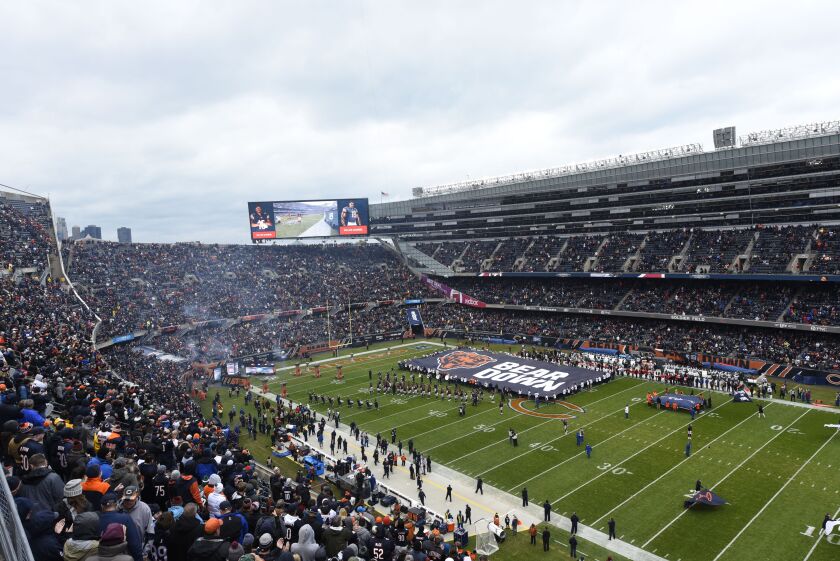It’s still early in the game, but we’re going to shout this to the top of Soldier Field right now:
Nobody should even think about picking the pockets of the taxpayers for a single dollar to build the Chicago Bears a new stadium in Arlington Heights.
The Bears are looking at building a new stadium on the site of the old Arlington International Racecourse. The team just this last week signed an agreement to buy the site for $197 million.
We’ve seen this play before, here and across the country. A professional sports team wants a new or refurbished stadium, it persuades the taxpayers to pick up an unreasonable share of the cost and then it walks away before you know it, leaving behind a white elephant.
Less than 20 years ago, Chicago — meaning Chicago taxpayers — committed $432 million to renovate Soldier Field for the Bears, money the taxpayers are still forking over. And now, already, the team is angling to leave or strike a better deal. But enough. The city should not further burden the taxpayers to support a privately owned football team worth $4 billion.
And the suburb of Arlington Heights, the state of Illinois and any other governmental entity should send the same message — if the Bears want to move, they must foot the bill themselves.
Public largess for stadiums comes in all sorts of forms. A government might sell bonds that must be backed by property or sales taxes. Or it might create a tax increment financing district. Or offer property tax rebates. Or give a team a share of the amusement taxes. Or steer to a team revenues from a publicly financed stadium.
If the Bears move to Arlington Heights, what are the chances the team will pay for the new roads and other infrastructure needed to make the stadium work? About zero. You, the taxpayer, will pay those costs, directly or indirectly.
Sports teams always justify such public investment by claiming their new stadiums will produce all sorts of new benefits for the people of a town. Revenue will flow into municipal budgets! But when it comes to football stadiums that host just 10 or so games a year, studies show that does not happen. Stadiums are not reliable builders of local economies.
Arlington Heights has dodged this bullet before. In the 1970s, the Bears wanted the village to issue general obligation bonds to build a stadium possibly patterned after the Pontiac Silverdome in Michigan. Fortunately, the Bears deal fell through. The Detroit Pistons moved out of the Silverdome 13 years after it was completed in 1975 and the Detroit Lions pulled up stakes 13 years later. Pontiac sold the stadium for less than 1% of the cost to build it. It was razed in 2017.
Before the Bears come calling, elected leaders such as Arlington Heights Mayor Thomas Hayes and Gov. J.B. Pritzker should tell the Bears that every dollar of taxpayer money is in a lockbox. And they should tell them now.
Send letters to letters@suntimes.com.







